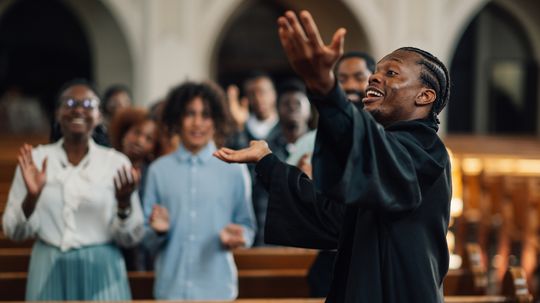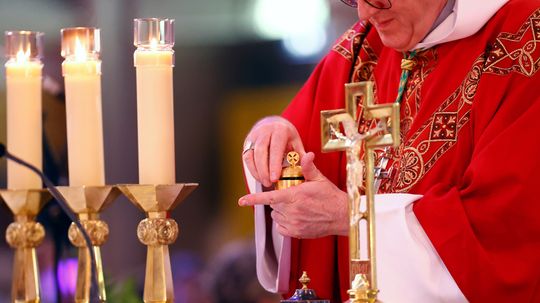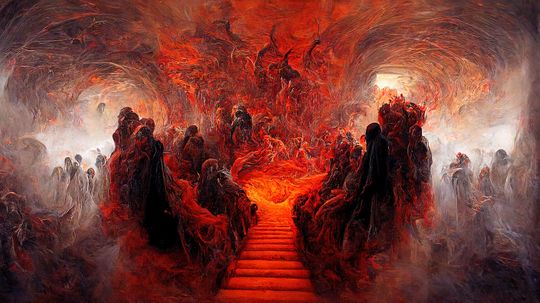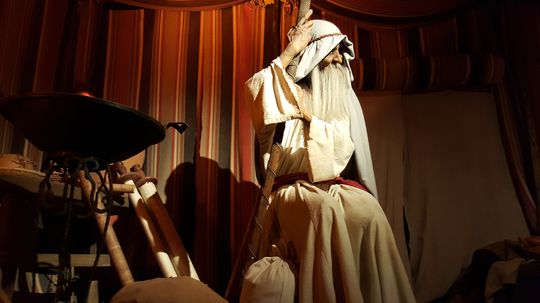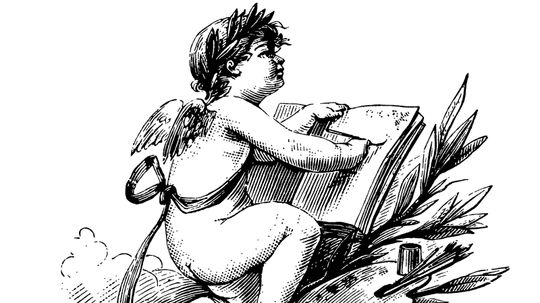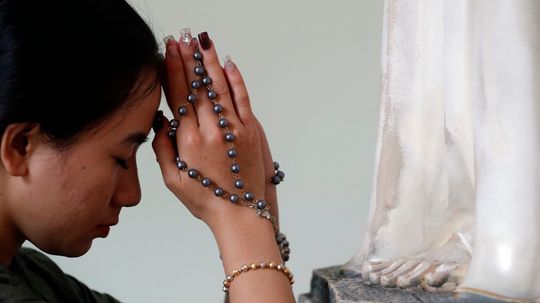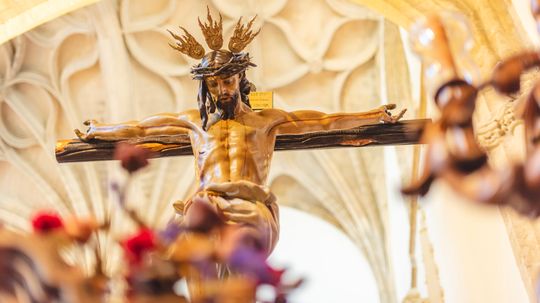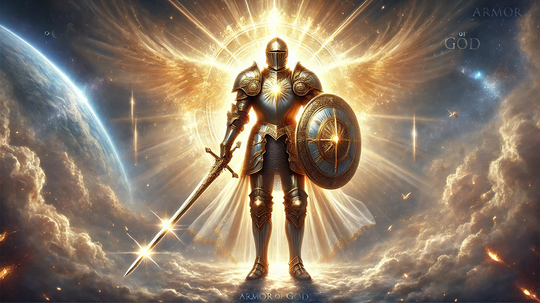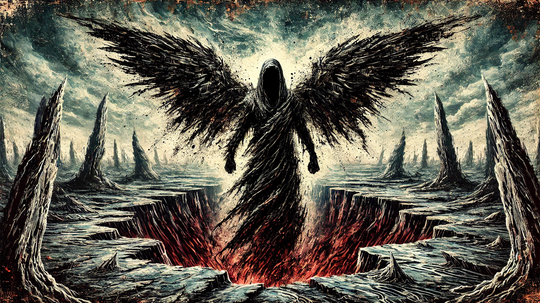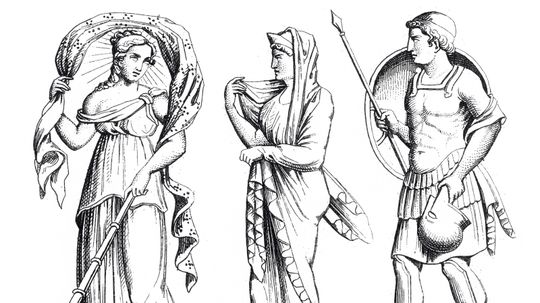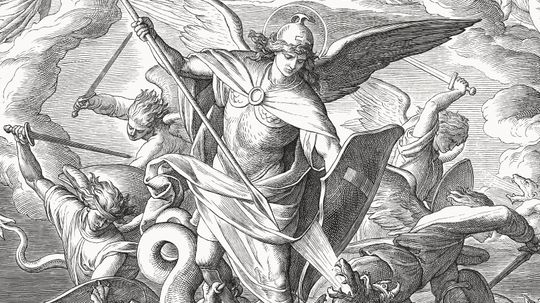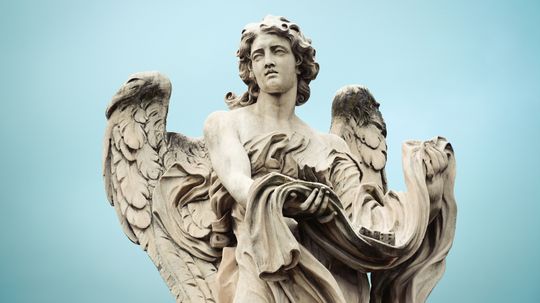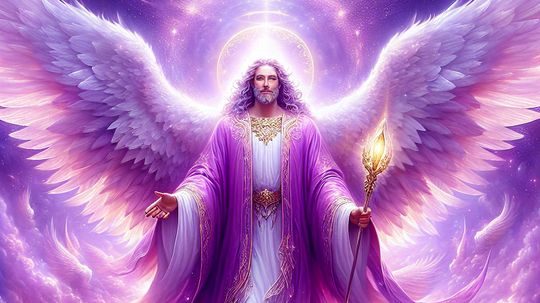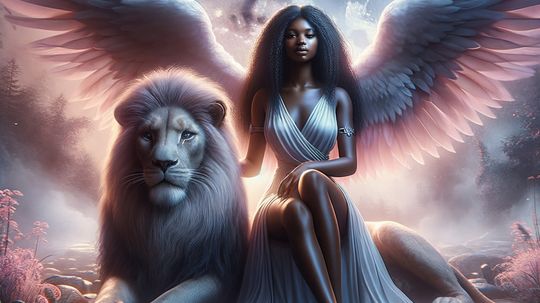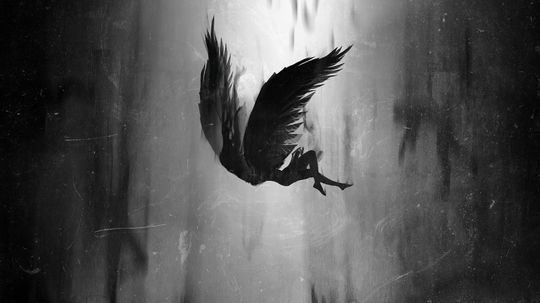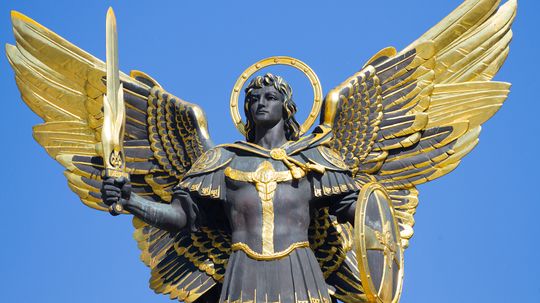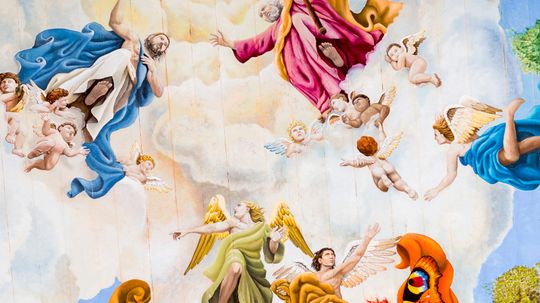Western Spirituality
Western Spirituality observes spiritual practices of the West. Find information on topics related to angels, sainthood or the Papacy.
Learn More
Prayers for protection can offer comfort, courage, and spiritual shelter in a world that can feel uncertain.
If you are searching for prayers for strength, you may feel weak, weary or overwhelmed by current circumstances. In moments like this, prayer may help you find courage, spiritual strength, and peace.
In difficult moments, many people turn to prayer to quiet an anxious heart. Prayers for anxiety offer a way to lay down worries, seek wisdom, and find peace in the midst of stress.
Advertisement
The Bible tells stories of healing love that reaches from the first breath of life to the last sigh. When illness or pain hits, many people turn to prayer for grounding and hope.
By HowStuffWorks
Whether spoken softly in private prayer or shouted in church, the word carries weight. But have you ever asked, why do we say amen?
Where did Christianity originate from? The question has a surprisingly detailed answer.
They go by many names. Some are symbols of destruction, others twisted forms of ancient gods, and a few look suspiciously like medieval nobles on a really bad day. Whatever you call them, this list of demons captures a lot of fear, folklore, and theology.
Advertisement
Today we're diving into the eerie concept of memento mori. In Latin, the phrase memento mori literally means "remember that you must die," and it has been a central theme in religious thought, art and philosophy for centuries.
By Talon Homer
Today, we're diving into the legendary figure of Methuselah, the oldest person recorded in human history. Mentioned in the Bible as living 969 years, Methuselah is often seen as a symbol of longevity and divine mystery. But what makes him so significant in religious tradition?
By Talon Homer
Ah, cherubim — those mysterious angelic beings that have sparked curiosity for centuries. These spiritual beings appear throughout the Bible, often depicted as guardians of God's presence, and their descriptions range from awe-inspiring to downright otherworldly.
By Mack Hayden
Today, we’re talking about penance, one of the most meaningful practices in Christian faith. Whether in the Catholic Church, the Eastern Orthodox Church or other Christian traditions, penance plays a crucial role in spiritual life. It's not just about saying "I'm sorry"; it's about real transformation and a return to God's grace.
By Mack Hayden
Advertisement
Today, we're diving into a concept that has inspired Christians for centuries: the Fruits of the Spirit. These aren’t apples, oranges, or bananas, but rather the qualities that the Holy Spirit produces in believers, helping them grow in faith and reflect the character of Jesus Christ.
By Mack Hayden
Easter is one of the most significant holidays in the Christian calendar, marking the resurrection of Jesus Christ and affirming the promise of eternal life. As Christians celebrate Easter, they reflect on Christ's triumph over death and sin, a central message of the Christian gospel that has shaped faith for centuries.
By Mack Hayden
The Christian faith — like many religions — is known for having a range of interpretations, especially when it comes to the Bible. Today we'll be looking at a passage from Ephesians, from which we get the term "armor of god."
By Zach Taras
The most powerful Christian deity is divided into three primary forms: the Father, the Son and the Holy Spirit. With so many forms, it's only natural that this Holy Trinity would bear so many namesakes.
By Mitch Ryan
Advertisement
If you've ever heard of Abaddon, you might know him as a mysterious figure of destruction and judgment. In religious texts, Abaddon is the angel of the bottomless pit, a powerful being connected to the underworld and the end of days.
By Zach Taras
Many Greek gods and goddesses were associated with battle, but Ares was known as the one true Greek god of war (not to be confused with Kratos, the protagonist of the "God of War" video game franchise).
By Mitch Ryan
Abrahamic religions often refer to angels who are servants of God, often coming down to Earth to perform miracles and give guidance to humans. Above even the angels are what believers call archangels, who are an elite class basically serving as the Lord's chief princes, reporting to him directly.
By Talon Homer
Although there are plenty of named and unnamed angels mentioned in both the Torah and the New Testament Bible, Archangel Raphael is likely one of the most recognized by scholars as well as casual readers of ancient mythology.
By Talon Homer
Advertisement
In many New Age spiritual practices, it's believed that angelic beings — such as the archangel Zadkiel — can be called upon to help guide and empower the passionate seeker. Here, we'll take a look at this celestial figure, and how you might draw upon his angelic wisdom and power to improve your life.
By Zach Taras
Archangel Ariel, whose name means "Lion of God" or "Lioness of God," tends to the natural world and the physical universe. Sometimes depicted as a male and sometimes as female (we use she/her pronouns in this article), Ariel's role extends to overseeing the elements, wild animals and the environment.
By Mack Hayden
While the popular understanding of most major, monotheistic religions tends to emphasize God, certain prophets and the written teachings of the spiritual tradition, there is a whole world of lesser-known entities who can be deeply significant.
By Zach Taras
Lucifer, whose name means "light bearer," is one of the most complex and significant figures in Christian tradition. Originally a high-ranking angel created by God, Lucifer's fall from grace is a powerful narrative that has shaped religious and literary depictions of evil for centuries.
By Talon Homer
Advertisement
The figure of Saint Michael, or Michael the Archangel, is one of the most powerful and revered beings in religious history. Known as the protector of the faithful and a warrior against evil, Archangel Michael is venerated across Christianity, Judaism and Islam.
By Mitch Ryan
In Christian tradition, an archangel is among of the most revered and powerful spiritual beings in the celestial hierarchy. Mentioned directly in both the Old and New Testaments, these angels serve as messengers, protectors and agents of God's divine will.
By Mitch Ryan




